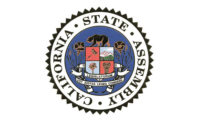Schwarzenegger Vetoes Softener Ban, Signs Water Quality Bill
Stating
that the law would have hurt consumers and had “little positive impact,”
California Governor Arnold Schwarzenegger
vetoed AB 2270, the water softener ban bill, on Sept. 30.
Stating that the law would have hurt consumers and had “little positive impact,” California Governor Arnold Schwarzenegger vetoed AB 2270, the water softener ban bill, on Sept. 30.
“We created a cascade of opposition from the makers, sellers and users of water softeners,” said Peter Censky, executive director of the Water Quality Association. “Fortunately, common sense prevailed in the end.”
Schwarzenegger acknowledged the reality of salinity problems. However, he said in his veto message that the bill includes provisions “that go too far in limiting residential use of water softeners.”
The WQA, the Pacific Water Quality Association and others in the industry put together a coalition to oppose the bill. This coalition included retail “big-box” companies, major brand names, dealers and many of their employees, and the Retail Merchant’s Association.
The coalition sent nearly 1,000 letters to legislators against the bill. The PWQA, the WQA and other retailers hired a lobbyist, and two industry members - Culligan and GE - also hired lobbyists and communications firms. A major awareness and e-mailing campaign led to the placement of three full-page ads in the Sacramento Bee.
Through a new Web site, SaveMySoftener.com, the industry helped direct more than 14,000 consumer e-mails to every legislator in California and the governor’s office, expressing their personal opposition to the ban.
“The state’s own groundwater monitoring program shows that more than 100,000 Californians lack access to clean, safe drinking water,” said Caballero.
AB 2222 directs the State Water Resources Control Board to recommend to the legislature policy solutions to address acute drinking water problems in areas where communities rely primarily on groundwater. The board has been conducting groundwater monitoring since 2002. The program has gathered data from the 16,000 public drinking wells, and its work is nearly complete. The data documents the closure of more than 8,000 public drinking water wells since 1984 - in most cases, due to contamination.
AB 2222 takes effect on Jan. 1, 2009.
Stating that the law would have hurt consumers and had “little positive impact,” California Governor Arnold Schwarzenegger vetoed AB 2270, the water softener ban bill, on Sept. 30.
“We created a cascade of opposition from the makers, sellers and users of water softeners,” said Peter Censky, executive director of the Water Quality Association. “Fortunately, common sense prevailed in the end.”
Schwarzenegger acknowledged the reality of salinity problems. However, he said in his veto message that the bill includes provisions “that go too far in limiting residential use of water softeners.”
The WQA, the Pacific Water Quality Association and others in the industry put together a coalition to oppose the bill. This coalition included retail “big-box” companies, major brand names, dealers and many of their employees, and the Retail Merchant’s Association.
The coalition sent nearly 1,000 letters to legislators against the bill. The PWQA, the WQA and other retailers hired a lobbyist, and two industry members - Culligan and GE - also hired lobbyists and communications firms. A major awareness and e-mailing campaign led to the placement of three full-page ads in the Sacramento Bee.
Through a new Web site, SaveMySoftener.com, the industry helped direct more than 14,000 consumer e-mails to every legislator in California and the governor’s office, expressing their personal opposition to the ban.
Water Quality Bill
Schwarzenegger did sign AB 2222, a bill by Assembly member Anna Caballero (D-Salinas), which directs the state’s water quality agency to develop answers to the problem of contaminated drinking water.“The state’s own groundwater monitoring program shows that more than 100,000 Californians lack access to clean, safe drinking water,” said Caballero.
AB 2222 directs the State Water Resources Control Board to recommend to the legislature policy solutions to address acute drinking water problems in areas where communities rely primarily on groundwater. The board has been conducting groundwater monitoring since 2002. The program has gathered data from the 16,000 public drinking wells, and its work is nearly complete. The data documents the closure of more than 8,000 public drinking water wells since 1984 - in most cases, due to contamination.
AB 2222 takes effect on Jan. 1, 2009.
Looking for a reprint of this article?
From high-res PDFs to custom plaques, order your copy today!



